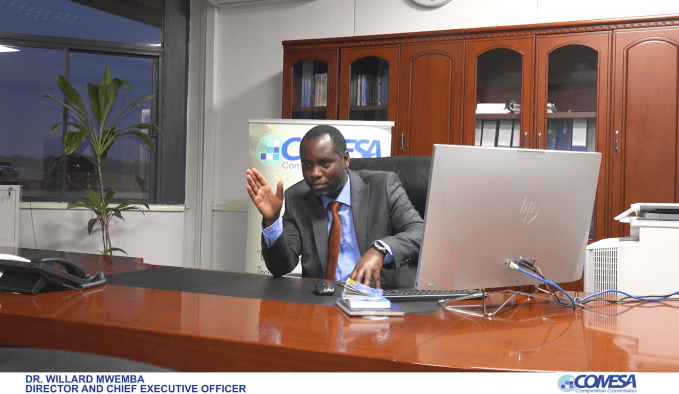AAT discusses how the Kenyan antitrust watchdog, CAK, is seeking input on its recently released draft amendments
By Joshua Eveleigh
On 28 May 2024, the Competition Authority of Kenya (“CAK”) published a request for public comment on its ‘Draft Competition (Amendment) Bill, 2024’ (the “Amendment Bill”). The Amendment Bill seeks, most notably, to broaden the scope of the Competition Act to include ‘digital activities’ and to replace the recently included ‘abuse of buyer power’ prohibition with an ‘abuse of superior bargaining position.
Digital Activities
The Amendment Bill defines ‘digital activities’ as:
“the provision of a service by means of the internet, or provision of digital content, for the benefit of business consumers or other consumers (whether paid for or otherwise and whether or not such activity is multisided), and may include —
- online intermediation services, including online marketplaces and app stores;
- online search engines;
- online social networking services;
- video-sharing platform services;
- independent interpersonal communication services;
- operating systems;
- cloud computing services; and
- online advertising services”
Moreover, the new law would broaden the assessment for effects on competition or a firm’s dominance provided for in the Competition Act to include the following:
- in the context of digital activities, where dominance can be established even with market shares below forty percent, the Authority shall consider factors that typically grant significant market position, whether they arise from the digital activity being performed in one or multiple markets;
- direct and indirect network effects and the entry barriers arising in connection with those network effects;
- economies of scale and scope enjoyed by the undertaking, including with regard to the undertaking’s access to data relevant for competition;
- switching costs for users and the ability and propensity for users to multihome; and
- competitive pressure driven by innovation;
- the importance of the intermediary services provided by the undertaking for accessing supply and sales market, including with reference to the size of the undertaking and the number of business and individual users it has and the period over which that level of importance has been held.
Says Andreas Stargard, a partner in Primerio’s competition-law group, “[e]vidently, the CAK is joining the global trend in regulating online marketplaces and firms. Our Kenyan colleagues expect more enforcement against firms that are active within the digital space – particularly given the CAK’s focus on the online sector in its past market studies and investigations.”
The inquiries mentioned include:
Abuse of Superior Bargaining Position
The Amendment Bill also seeks to remove the ‘abuse of buyer power’ prohibition, despite it only being included subsequent to recent amendments to the Competition Act in 2019. Interestingly, this change also comes after the CAK’s recent success in enforcing the newly-implemented buyer power provision, including:
- the CAK’s announcement that it was able to recover reneged payments worth KES38 million from twenty motor vehicle repairers and five motor vehicle assessors in favour of 1, 000 Kenyans;[1]
- its settlement with Unilever Kenya Limited resulting in the revision of payment terms for a number of its suppliers; and
- the High Court of Kenya’s recent finding that Majid Al Futtaim Hypermarkets Limited had abused its buyer power in respect of its commercial relationship with Orchards Limited, confirming the finding of Kenya’s Competition Tribunal.
Now, in lieu of the perhaps more narrowly perceived Buyer-Power clause, the Amendment Bill seeks to include an entirely new section 40A to the Competition Act, prohibiting the abuse of a ‘superior bargaining position’, defining it as:
“the ability of an undertaking to control, direct, define or determine the conditions of business operations with counterparties which are favourable to itself without reference to the undertaking’s dominant market position or market power in the relevant market;” (our emphasis)
While the proposed definition is clear in that a firm need not be dominant or have market power to have a ‘superior bargaining position’, the Amendment Bill provides that the CAK must consider the following factors in determining whether a superior bargaining position in fact exists:
- the degree of dependence by the affected undertaking or undertakings on transactions with the party under investigation;
- the position of the undertaking in the market;
- the possibility of the affected undertaking to change its business counterpart; and
- whether the party under investigation is an unavoidable trading partner or a critical business partner in the relevant market.
Additionally, the Amendment Bill looks to broaden the conduct which would trigger an abuse of a superior bargaining position from what is already included in what may trigger an abuse of buyer power. These additional categories include, inter alia:
- unilateral variation of contractual terms, conditions, or other rules associated with the transaction or service without prior notification to the counterparties;
- unreasonable collection and/or processing of data of the counterparty;
- imposing unduly difficult conditions for the termination of service; and
- obstruction of business activities or interference in the counterpart’s management of its business.
Notably, an abuse of superior bargaining position attracts the same penalties as the current abuse of buyer power provision, that being a period of imprisonment not exceeding five years or a fine not exceeding KES 10 million shillings, or both.
Looking Ahead
“It is clear that the CAK is looking to broaden the ambit of its enforcement initiatives. In this regard, we note that the ‘abuse of superior bargaining position’ is largely identical to the current abuse of buyer power framework. It is likely, therefore, that the CAK is looking to translate its recent success against ‘buyers’ to firms at all levels of the supply chain, irrespective of whether they in a position of supplier or purchaser,” says Mr. Stargard.
Following this approach, it appears to us that the abuse of dominance provisions in the Competition Act have been given something of a ‘downgrade’. Specifically, it is not apparent to the author why a disgruntled firm (or the investigating CAK) would rely on the existing abuse of dominance provisions (and thereby needing to actually establish a firm’s dominance) when the would-be plaintiff could rely solely on the incredibly broad superior bargaining position provision — which notably does not require a showing of dominance or market power.
We are also interested to see whether the proposed superior bargaining provision will have an ‘opening the floodgates’ type effect if and when implemented. In this regard, it appears that an economic dependence argument would be relevant in determining whether a firm has a superior bargaining position. Absent a dominance requirement, the CAK may well be inundated with complaints from disgruntled contracting parties.
[1] CAK, Newsletter Issue No.9 (2022), at 3. Available at: https://cak.go.ke/sites/default/files/2022-06/CAK%20Newsletter%20Issue%209.pdf






